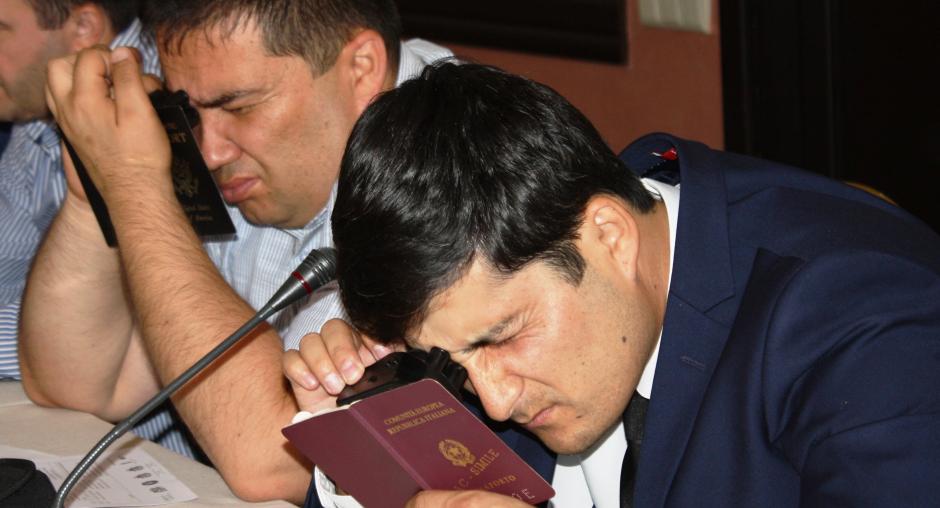Border guards trained on document security at regional OSCE event in Kazakhstan

ALMATY, Kazakhstan, 22 June 2016 – An OSCE-supported train-the-trainer regional course on document security for some 20 border guards from Kazakhstan, Kyrgyzstan, Tajikistan and Uzbekistan began today in Almaty, Kazakhstan.
The three-day event is organized by the OSCE Programme Office in Astana in co-operation with the EU-funded Border Management Programme in Central Asia (BOMCA).
Experts from Latvia and Slovakia will share best practices in international document security, including the identification of falsified travel documents, document control, the use of paper and polymer substrates in document security, conventional printing techniques, photo protection, secondary verification, and profiling techniques to identify potential criminals during the border crossing check-up procedure. The participants will also have an opportunity to work with genuine and falsified travel documents from different countries in order to utilize the new methods learned in the course.
“In order to protect a country’s borders, it is crucial to know what verification methods are used in all travel documents and the common features of forged documents,” said Colin McCullough, Political Officer at the OSCE Programme Office in Astana. “This is best done through consistent familiarization on relevant technology and regular exchange of information and experience with other relevant authorities,”
Gunta Laganovska, a trainer at the seminar and Chief of the Expert Service, Central Department of the State Border Service for the Republic of Latvia, said: “International co-operation between border services is a crucial part of a system to prevent illegal migration. The exchange of information and experience in identifying forged documents enables the growth of the professionalism of all participants in this seminar. The train-the-trainers approach allows for the possibility to transfer new skills to a large number of border guards where they work.”
The seminar is part of the Office’s long-standing efforts to promote the OSCE border security concept and counter transnational crime in the host country.
